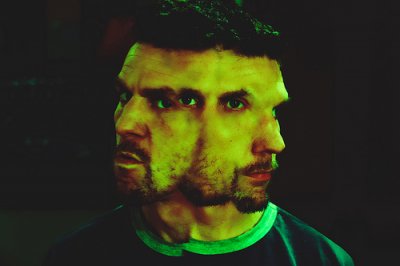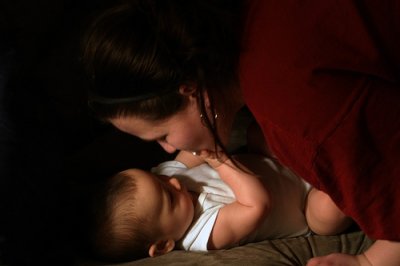What is Emotional Dysregulation?

By: David Goehring
by Andrea M. Darcy
Confused by a diagnosis of emotional dsyregulation? It’s a complicated term for a personality trait that means you are more emotional than most.
What is emotional dysregulation?
Think of a singer who can sing many more octaves than the people around her. She can’t stop herself from breaking into song spontaneously when the ‘muse’ hits, and when she sings, she is completely taken by the music. Now replace her singing with emotions, and you are approaching what it feels like to have emotional dysregulation.
Emotional dysregulation (ED), also called ‘emotional hyperactivity’, means that you are more emotionally responsive than an average person. Your emotions will be triggered more quickly, and will tend to be on a bigger scale. You also have more difficulty controlling your emotions than others do. Your might often feel taken over and lost in your emotional states.
Emotional dysregulation can look like:
- angry outbursts ( you can go from fine to rage in a few seconds)
- breaking into tears often
- ‘freaking out’ all the time and being called ‘too dramatic’
- accusing/blaming people of things before you have facts
- breaking things when you are upset
- not just feeling sad, but feeling suicidal
- lashing out at others before you can stop yourself
- feeling abandoned by others all the time
- others always saying you overreact
- feeling misunderstood by those around you
- your moods swinging rapidly in ways other people find confusing.
Of course most articles about emotional dysregulation focus on the ways it makes life hard, so on the ‘negative’ side to things. But if you have emotional dysregulation, you can also be more deeply touched by things like art and music than others, and able to experience profound joy. With time, when you get to know yourself better, you might find that you also have a talent for showing empathy.
So if I have emotional dysregulation there is something wrong with me?
It’s important to keep in mind that mental health labels are not ‘diseases’. You can’t see them under a microscope. They are just ways of referring to people who deviate from the norm of the Western society we live in.
For perspective, even in Western society some countries accept big emotions more than others. It is, for example, less frowned on to break into yelling or tears in Italy than it is in America.
At the same time, emotional dysregulation is a very big deal if it is making your daily life hard.
This can look like:
- dramatic and exhausting romantic relationships
- being unable to keep friends
- trouble holding down a job
- low self-esteem
- loneliness
- money problems
- criminal charges or incarceration
- suicidal thinking
- self-harm.
So instead of focussing on what is ‘wrong’ with you, consider focussing on how you can work with yourself so that your emotional sensitivity does not sabotage the things that are important to you.
Why do I have emotional dysregulation?
[Note that for some people emotional dysregulation is simply medical, caused by a head trauma.]
Like most psychological conditions, there is no exact answer. It varies by the individual, and tends to be a mix of biological and environmental factors.

By: Paul J Everett
It does seem that some children are biologically born more likely to have emotional dysregulation. Infants can show signs of dysregulation at several months old, and some then grow up to have behavioural and emotional problems.
But ED can be a result of the way you were parented. For our emotional system to develop in a healthy way, we need to have a caregiver we can trust to love and be there for us no matter what our behaviour . (This is the idea behind what is known as ‘attachment theory‘). Of course we also need that parent to give us freedom as we learn to venture out and try things for ourselves.
If our primary caregiver instead ignores our needs, is unreliable and unpredictable, or is smothering? Then it disrupts our healthy emotional development. We don’t learn to self regulate well.
Childhood trauma as well as recent trauma can also cause emotional dysregulation. Trauma affects the brain, leaving it less able to manage stress.
Emotional dsyregulation and other disorders
ED is often connected to these mental health disorders :
Borderline personality disorder (BPD) – this is the disorder most connected to emotional dysregulation. In fact it is sometimes (and more fittingly) called ‘unstable personality disorder’, or even ‘emotional dysregulation disorder’.
Attention deficit hyperactivity disorder (ADHD) – the frustration ADHD causes can lead to outbursts and mood swings. And the impulsive behaviour can cause drama and irritability.
Post traumatic stress disorder (PTSD) – it leaves sufferers very jumpy and always in the stress response, meaning you are prone to overreact.
And ED tends to come hand-in-hand with several psychological issues:
Addictive behaviours – this includes things like smoking, alcoholism, drugs, and overeating. The addiction is used as a coping mechanism to control and numb the big emotions you feel.
Self-harm – this can be used in the same way as addictive behaviours, to ‘numb out’.
Other issues and disorders connected to emotional dysregulation are:
What do I do if I think I have emotional dysregulation?
It’s important to seek a proper diagnosis over self-diagnosing, which can cause unnecessary stress.
A psychologist or psychiatrist will be able to determine if it is emotional dysregulation or not. If so, they will discuss with you what treatment is best. This does not always have to involve medication. If you have borderline personality disorder, for example, they will suggest you try a talk therapy designed to help those with BPD.
Harley Therapy connects you with counselling and clinical psychologists and psychiatrists in London who can diagnose emotional dysregulation. Already have a diagnoses, not in London, and need an affordable therapist? Visit our sister site harleytherapy.com to book therapy delivered online, by phone or in person.
 Andrea M. Darcy is a mental health and wellbeing expert, who has done some training in person-centred counselling and coaching. She often writes about trauma, relationships, and ADHD, and advises people on how to plan their therapy journey. Find her on Instagram @am_darcy
Andrea M. Darcy is a mental health and wellbeing expert, who has done some training in person-centred counselling and coaching. She often writes about trauma, relationships, and ADHD, and advises people on how to plan their therapy journey. Find her on Instagram @am_darcy






Is Emotional Dysregulation known as emotionally unstable/borderline personality, informatiom across sites is conflicting.
Is ED a stand alone diagnosis
Hi there, emotional dysregulation is a main symptom of unstable/borderline, but it is standalone, and a diagnosed symptom not a syndrome or disorder. It can for example be a symptom after a severe trauma like a a criminal assault. Best, HT.
this describes me perfectly, i am 44 and wish i had been diagnosed with this a long time ago, it might have saved a lot of relationships…..i have adhd, manic depression, schizophrenia, social and general anxiety….this totally explains why my emotions are all over the place, and why i spent 20+ years as an active alcoholic (clean 10 years) to shut the emotions off…..i am presently in a manic state as my 7 year relationship just ended, and it is a trauma bond relationship….tragic….
Sarah, sounds tough, do you have someone to talk to? You don’t sound tragic to us, you’ve managed to kick an alcohol habit and have a relationship at all, healthy or not, so give yourself some credit here. As for a diagnosis of dysregulation, it’s more of a symptom than a standalone diagnosis. Were you officially diagnosed with manic depression and ADHD? The psychiatrist might have explained it using different words, such as saying you have emotional sensitivity, or difficulties managing your emotions. It would be trauma that explains why your emotions are all over the place, though, emotional dysregulation is the result of trauma, its symptom, not a cause. Trauma affects how our brain and this can be one of the consequences. With all these diagnoses, have you done solid time in therapy yet? If not, we’d advise you take a look at our article on therapy that helps trauma here http://bit.ly/therapyfortrauma. And if you are really stressed and have nobody to talk to don’t overlook calling a helpline, here’s our list of free UK ones http://bit.ly/mentalhelplines Best, HT.
I have no idea why it is that I cry over nearly everything. Good, Bad, Sad, A Movie, Commercials, Books, etc. What the hell is wrong with me? I’m retired at age 68 and believe it may have something to do with when I fell off a garage roof top and banged my head really good and went to the hospital, which I don’t remember. I just don’t remember this crying before that incident in my life.
Hi there Charles. When did you bang your head? It is possible that it is connected and worth talking to a doctor if recent. Or to see if hormonal changes are involved. Otherwise, from a psychological perspective, we notice you say you are retired. Retirement means we are no longer hiding behind the busy life of a career, and sometimes it can mean that a life’s worth of emotions is waiting to be expressed, a backlog. If the GP gives you all clear on your health, then don’t overlook counselling as a way to work through your big emotions. By the way, emotions don’t have to mean there is something wrong with you. Really they mean you are truly alive. If you were by chance constantly busy and emotionally numb before, we don’t know the situation, but if so, then it might mean there is something now right with you. best, HT.
My Daughter has been told she has Emotional Dysregulation. So many web sites attribute it to abuse or neglect in childhood. This is causing me upset that this must be what professionals think I’ve done to my Daughter. My Daughter didn’t display symptoms of this until late teens after anxiety had already been present. She doesn’t have any anger outbursts. Could a toxic relationship with a boyfriend lead to this?
Hi Fiona, there is a lot going on in this comment. We assure you that therapists are very empathic and very understanding, for example, they fully understand that parenting is hard. That despite best efforts on behalf of a parent a child might sometimes be the victim of trauma or abuse outside the household, at school, or through an acquaintance of the family, for example. Or that a parent’s best attempts at parenting might cause problems for their child, but that it is because the parent themselves was raised in a complicated household, had unresolved issues, or experienced a set of stressors that made parenting difficult. In summary, therapists don’t seek to blame but to understand and help. They aren’t there to help a client to find someone to blame, but to help a client understand themselves, cope better, and find ways to understand and have compassion for themselves and others, including family members. A therapist is also client focussed. They are not concerned with you, but with your daughter. This is not about you it is about your daughter after all. But what is worrisome in this comment, and we say this as gently as possible, is that it seems that you are more concerned about being blamed and about yourself than your daughter and her wellbeing, and that without realising it you are putting the focus on yourself. Where does this come from? This strong need to self defend to the point you will panic if you feel judged and without realising it make everything about yourself? The immediate assumption you are the victim? As this is indeed an assumption, as a child can feel traumatised by any number of things in childhood, such as school experiences, a therapist would not immediately assume it came from one place such as the mother. In summary, we’d suggest that you consider counselling yourself. At the very least you could then understand the process and feel more at ease. But we suspect it could really help your sense of self, your esteem, and your tendency to feel victimised by events, as well as improve your relationships, including with your daughter. Regarding angry outbursts, they are not necessary for emotional regulation, many women instead experience sadness. As for a toxic relationship with a boyfriend, the root would still go back to childhood, as a person with a very stable background is unlikely to choose a toxic relationship in the first place. Best, HT.
I’ve been having problems with my emotions for a few years now, I find myself getting upset over the smallest things and I get defensive with my partner when there’s no need to. I continually read a situation wrong or assume someone’s having a go at me or upset with me when they aren’t. I struggle to cope with my emotions and find them to be so overpowering that I can’t stop crying and end up extremely exhausted. I have a constant worry that I’m not doing enough, that I’m not good enough, that I cause so many problems for everyone around me, when in reality I know this to not be true if I think about it when I’m calm. I can’t help but feel there’s something wrong with me, I know my childhood trauma is a major attribute to my behavior and I need help, I don’t want to be like this, I don’t want to lose my friends and loved ones because I’m to emotional and dramatic. I just don’t know where to turn or who to ask for help